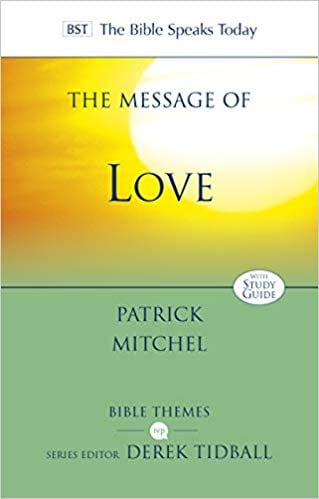BEN: At one point you say, in dealing with the key text of Exod. 34.6-7 if there had only been vs. 7, there would have been no land, no covenant, no future, no hope, and if there had not been 34.6, there would have been no kings, no temple, no prophets, no messiah, no incarnation, no atonement for sin on the cross (p. 24). In short, all this in some sense hangs on the love and compassion and mercy of God, who also judges his people (not love without judgment, and vice versa). How does one strike the proper balance between vs. 6 and 7 without on the one hand falling into ‘sloppy agape’ and cheap grace, and on the other prompting the caricature that the God of Exodus holds a grudge for many generations after a sin has committed by an Israelite? Do you agree with Fleming Rutledge when she says that God’s wrath is always exercised in the service of his good purposes, indeed it is the expression of his unconditional love and opposition to anything that gets in the way of his loving purposes?
PATRICK: I began the book with a chapter on Exodus 34:6-7 for a couple of reasons. Chronologically, it’s one of the first occurrences of God’s love for his people in the Bible and is a foundational text regarding the character of Israel’s God. The text doesn’t flinch from proclaiming Yahweh’s extravagant love right alongside his fearsome judgment and this tension continues to run right through the Bible. It seems to me that, to be faithful to Scripture, Christians have to try to hold that tension.
I recognize this is far from easy. Today, ‘judgment’ has become a ‘bad’ word. To be ‘judgmental’ is socially unacceptable; it’s a symptom of intolerance and is opposed to love. In the Republic of Ireland, where I live, Irish Catholicism used to use fear of divine judgement as a weapon of social control. Now, even to mention the notion of divine judgment in public is likely to land you in a lot of trouble. And this reaction against past misuse of judgment has impacted a large swathe of contemporary Christianity. Mostly, I think, by not overtly denying the reality of judgment but rarely, if ever, talking about it. Such silence says a lot. Few people have taken on such silence with skill, passion and depth as Fleming Rutledge – I absolutely loved The Crucifixion: Understanding the Death of Jesus Christ and blogged through the whole book. Her recent book on Advent is excellent as well, with much to say about the goodness and necessity of divine judgement. In the Exodus chapter I conclude that God’s judgment is never his preferred course of action – it is always a response to human sin and evil that imperils his good purposes. God is ‘slow to anger’. God would not be loving if he were not also a judge. It is not as if God’s love somehow ‘overcomes’ his wrath, he is wrathful because he is loving.












